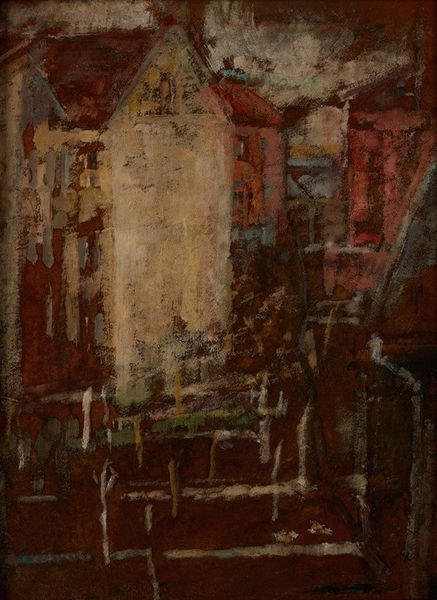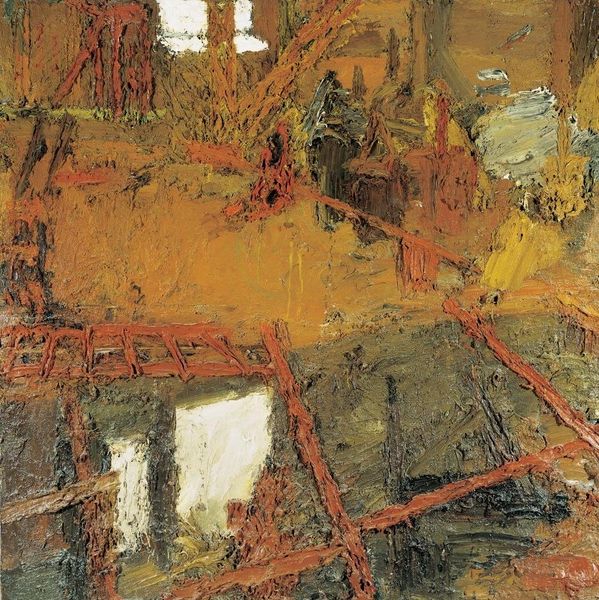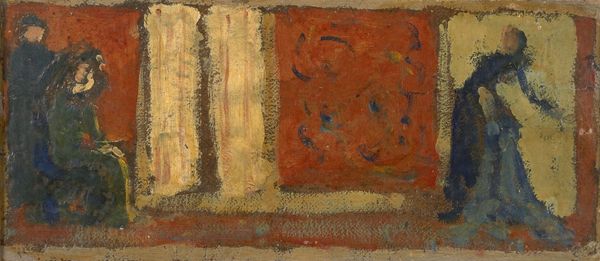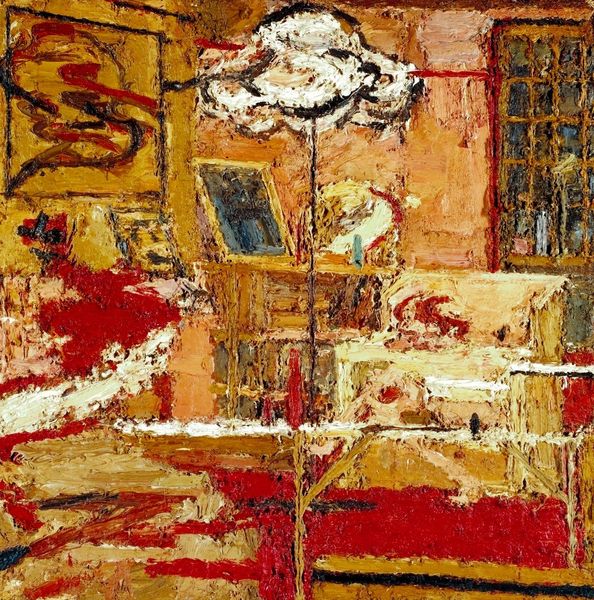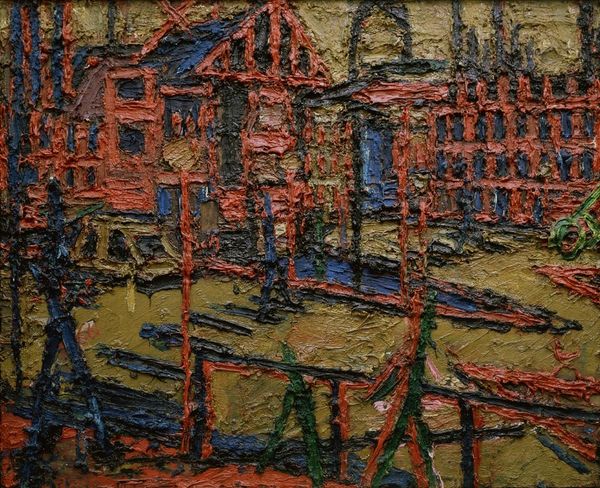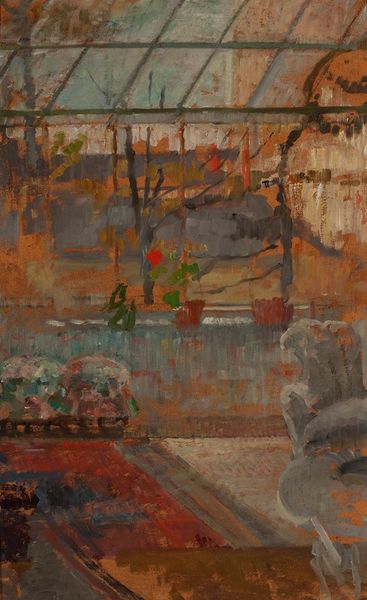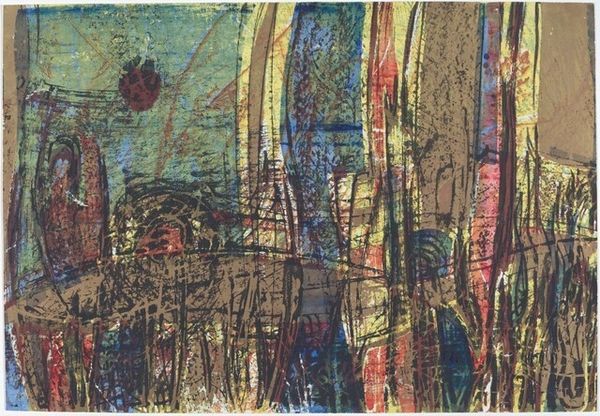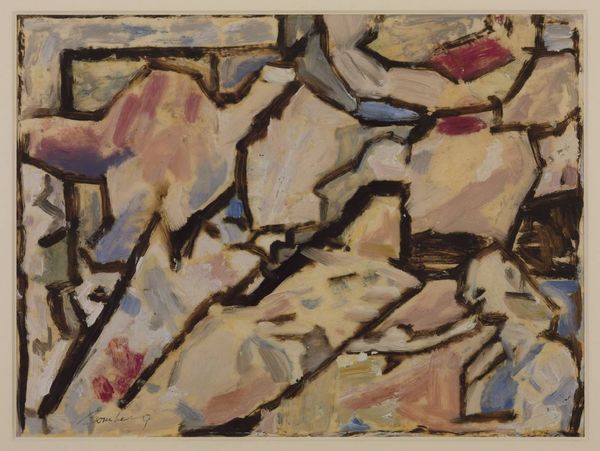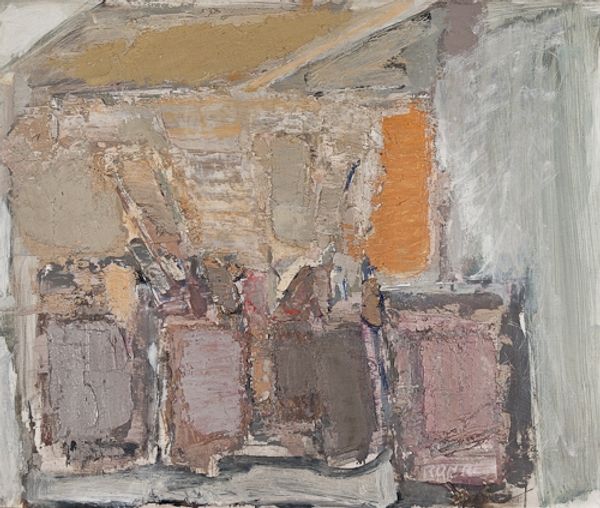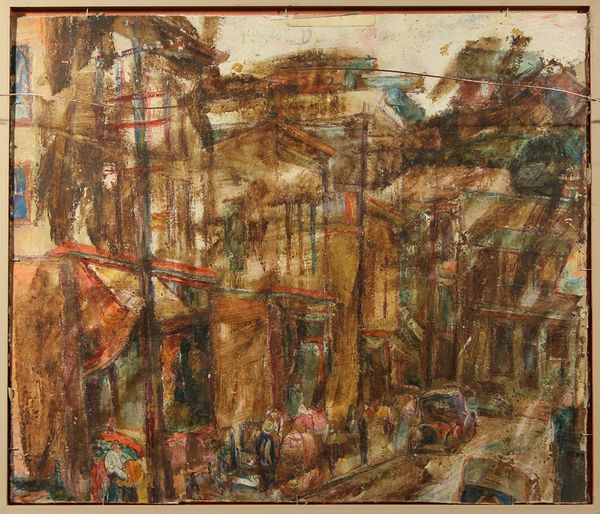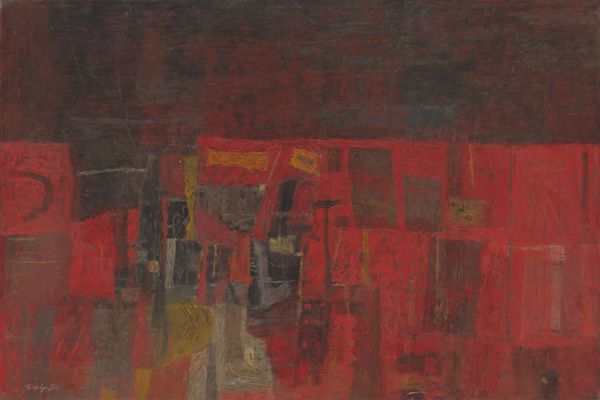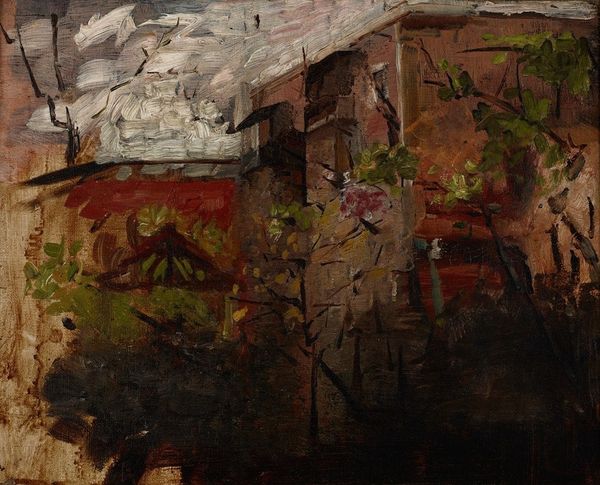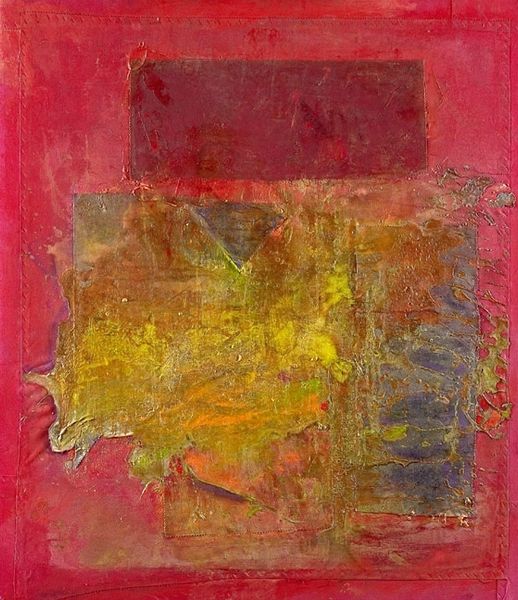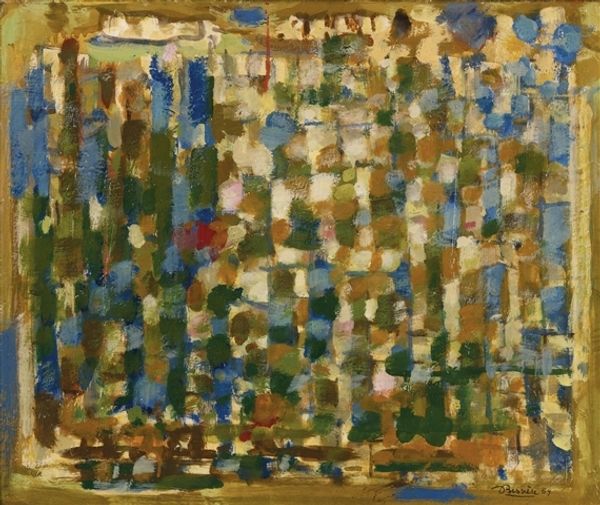
painting, oil-paint, impasto
#
abstract-expressionism
#
abstract expressionism
#
abstract painting
#
painting
#
oil-paint
#
landscape
#
oil painting
#
impasto
#
expressionism
#
expressionist
Copyright: Frank Auerbach,Fair Use
Curator: It certainly has an autumnal feel. Very warm and textured, almost feverish in its application of paint. Editor: Indeed. We're looking at "Maples Demo," an oil painting by Frank Auerbach. Auerbach's commitment to impasto is striking. The surface is built up, layer upon layer, into a dense topography. Curator: Topography is right! It's like a landscape rendered in three dimensions, a tactile experience as much as a visual one. There’s almost a sense of the urban decay present in much of Auerbach's output. It looks as though the city is collapsing under the weight of its own matter. Editor: That collapsing effect, though seemingly spontaneous, stems from a rigorous methodology. Auerbach would return to the same subject, the same models and locations, for years, reworking, scraping back, and rebuilding the image. This repetitive process reflects a post-war sensibility – a reconstruction after destruction. Curator: A compelling perspective, especially given Auerbach's biography as a child refugee arriving in Britain during the Second World War. The emotional weight of that experience surely permeates his art. But aesthetically, I'm captivated by how those striations of color play against each other – that sliver of green amidst the dominant yellows and browns… it disrupts the overall harmony just enough to keep it engaging. Editor: Absolutely. And consider how the thick paint transforms the very nature of the colors themselves. They become almost sculptural, solidifying the impression of weight and substance. One can feel the artist’s physical labor present in the finished work, making it resonate with raw energy and intensity. This aligns him, undoubtedly, with elements of Abstract Expressionism. Curator: It makes me wonder about the role of landscapes in this kind of subjective treatment. Is he attempting to capture the spirit of the place, or perhaps even the subjective experiences of that location? Editor: A pertinent question. Auerbach rarely engaged directly with landscapes of rural beauty. More often he painted cityscapes or derelict sites, imbuing these overlooked spaces with a new emotional significance and prompting audiences to reconsider their surroundings through new eyes. Curator: That definitely enriches my appreciation for the artwork, recognizing its unique blend of material presence and evocative imagery. Editor: Yes, indeed. "Maples Demo", like much of Auerbach’s work, reveals how subjective expression, rigorous process, and historical context intersect to create paintings that linger long in the mind.
Comments
No comments
Be the first to comment and join the conversation on the ultimate creative platform.
